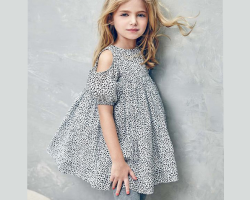In principle, to be afraid of any specific dangers is a completely normal person’s reaction. Even adults are inherent in what to say then about young children!
Content
- Child and his fears
- Why is the child afraid to be alone at home: about 2 main causes of children's fear
- The child is afraid to be alone at home: how to get rid of the child’s fears with a visual vector?
- What to do so that the child is not afraid to stay at home alone?
- Video: helping a child in overcoming fears
Nature itself has laid a sense of fear in us, and sometimes it can even help a person who is in the situations that threatens his life.
Child and his fears
- All children have a subtle mental organization, and sometimes they feel the danger at the level of intuition! But there are such cases when the fears of the child are absolutely not justified.
- The child is afraid to be alone at home even for the shortest time, and this already becomes a real problem for his parents. After all, sometimes you have to urgently go out for a small son or daughter to mom (dad, grandmother, nanny) to the store, or, for example, to the pharmacy.
- As a result, upon returning, the adult finds the child in a real hysteria. Where does such a causeless fear come from and how can it be defeated? Read the answer in our material.
Why is the child afraid to be alone at home: about 2 main causes of children's fear
- Psychologists have found that there are only two reasons why children suddenly begin to experience, it would seem, unreasonable fears. If it is impossible to help this trouble with any persuasion and reasonable arguments-the child does not seem to hear them at all, then it is time for you to study the system-vector psychology, which was developed by Yuri Burlan. Let's figure out with you the main reasons for the occurrence of fear in children.
- The first reason: unmotivated fear may appear in a child due to a violation of the sensation of his safe existence, and he feels unprotected for some reason.
- The second reason: the child has his own visual vector.

Safety and security - the basis of the normal development of the child
- Most often, the child is afraid to be alone at home if he has there is no certainty that parents are his reliable support and support.
- One can imagine such a situation if you suddenly have become a small and defenseless creature, and you will completely depend on some giant. He can take care of you and give you protection in case of danger, or can scold you, constantly demand something by a dissatisfied tone and intimidate you for any reason. Or not at all paying any attention to you, as if forgetting about your existence.
- This giant can also be weak and insecure, afraid of other giants and different life situations. You should not wait from such a giant protection, and it is impossible to count on your strength, because you are small and defenseless. Now you understand what the child feels in this case?
- If a 3-4-year-old baby experiences fear, staying at home alone even for a short time, then you should think about what perhaps he has there is no certainty that adults will return? This is especially true for a mother, who, perhaps, had to leave him for a long period of time without his society, and at that time he was patronized by strangers to him. After all, there are different situations: hospital, business trip, etc. And the child, meanwhile, experiences a terrible feeling that he was abandoned by the most dear person ...
- In families where dad and mom often shout at each other, while using phrases like: “Tired of everything! I'll leave here, and you will not see me anymore! ”; "Go away, I don't want to see you anymore!" etc., the child may begin to be afraid to lose his most dear people, on whom he now completely and completely depends. That's why he is scared to stay at home alone-what if one of his parents will leave him at this time?
- The child may experience negative emotions if there is no father in the family, and mother has to work a lot, and when she comes tired home, she no longer has the strength to pay enough attention and care to her baby. This condition is projected onto the child and can lead to fear to be alone even for a minute.

- Maybe you don’t even know that, for example, until you were, some man rowdled under your door in an inadequate state, shouted threats and knocked loudly, demanding to let him into your apartment. This could scare the baby to such an extent that he cannot even tell you all this. This happens if he does not feel confidence that you can protect him from such terrible offenders for him.
- There can be many any options. But there can be only one conclusion here: if he is scared to remain alone, then perhaps there is a reason why he does not trust you?
About children with a visual vector
- A 7-8-year-old child may be afraid to be alone at home after all sorts of terrible stories told by their peers in the evening, and even with an ominous voice. And especially sensitive little children and even more so they will feel fear that suddenly, when he is left alone, something terrible will happen to him.
- It is this special sensitivity, when fears are much closer than that of others, and is called a visual vector. Such people, and, in particular, children can instantly understand the emotional state of other people, feel all his experiences.
- Children with a visual vector are very emotional and vulnerable, unlike other kids. And if you are very close to your child, then you can quickly recognize that just such an enthusiastic-fugitive visual miracle is growing in your family. From how you can educate him, to instill self -confidence in him and that the world around him is not at all hostile, but, on the contrary, benevolent, the entire life of a “visual” child depends.
- Your correct actions can develop in it smart, subtly sensitive, understanding and able to empathize. And the wrong ones are to turn it into a hysterical, all -afraid person who is constantly experiencing emotional torment for any reason.
The child is afraid to be alone at home: how to get rid of the child’s fears with a visual vector?
- In no case should you subject such a special baby to “executions” in the form of criticism, notations, so that he feels shame for his unreasonable fears.
- Do not compare it with neighboring babies, who, unlike yours, are more “daring”. It is better to show him that you understand him like no one else, and with all your behavior, affection and care, instill confidence in him that life is beautiful, and nothing bad will happen to him.
- Never do not scare him with all sorts of horror stories Type Baba Yaga, Kikimora, Barmaleya, Alien, A terrible uncle, Babay, etc. “He is afraid of more than the rest without this.”
- Children's psychologists do not recommend reading terrible fairy tales and those where someone eats someone-these are fairy tales like Kolobok, “Wolf and Seven Kids”, etc. An impressive baby can immediately have associations among themselves and eaten by a hero. Can you imagine how he feels at this time?
- On the example of good fairy tales, develop bright feelings of compassion and empathy in your baby, teach him to understand what others feel. Teach him to feel a pity for animals and people in need. If he learns to empathize with fictional literary heroes, then over time he will do this in real life. In this case, the feeling of love will gradually replace all fears that lived in it until then.

- The right, correct books in this matter cannot be dispensed with. It is necessary to read the child and narratives with a sad end, from which tears themselves protrude before our eyes. But they will not be caused by fear, but by experiences for the main characters who fell into a particular life situation. With such pure tears, the soul of a “visual” child is cleared.
Psychologists strongly recommend reading a sad fairy tale “Girl with matches” (author Andersen) to read a sensitive child. Some parents who have already taken advantage of this recommendation argue that after listening, the child ceased to be afraid to stay at home alone.
What to do so that the child is not afraid to stay at home alone?
These are general rules for parents who dream that the child gets rid of his fears and is not afraid to stay at home alone:
- Take an axiom that it is simply impossible not to be afraid to be afraid to be at home alone. On the contrary, such actions will only aggravate his fear and a sense of his own insecurity. It is better to take up the creation of an emotional background in the house favorable for the child. Believe me his behavior is not pretense or game at all, he is really scary to be alone. Do not focus on his fears; If you behave competently, you can forever save your child from the groundless fear of some abstract dangers.

Consider the age of the baby - First of all, you should not deal with your child, trying to find out what is wrong with him, but to put your internal state in order. If parents, and especially, mother will be in constant alarm, then the child will be alarming. When the family reigns in the family and love, and mom has a good mood, the child’s condition will return to normal.
- Do not neglect games with the baby Build situational cases. For example, you can weave a story into a game plot that my mother seemed to be excommunicated about her business, and the child was left alone at home, and is not afraid of anything at all, but calmly plays with toys or examines pictures. And then - my mother coped with her affairs, returned home, and everything in their life is perfect.
- If the child is scared to go into the room in which the light does not burn, play with him using a flashlight. For example, give him a task in a dark room to light a flashlight and find a toy, picture or note on the table with his help (if he already knows how to read). Connect your imagination, come up with all sorts of game situations, and over time you will not only advise his fears, but also strengthen the trusting relationship.

Useful tips - Share with your childhood history of victory over fears (it can be heroic or humorous). After all, it is very important to instill in it the belief that his fears will certainly be defeated by him.
Useful articles on the site:
- How to overcome constant anxiety
- Syndrome "At least someone" or fear of loneliness in women
- Rumination: how to cope with obsessive thoughts and fears
- Fear of getting sick is what a phobia
- Nofobe - fear of darkness, reasons









